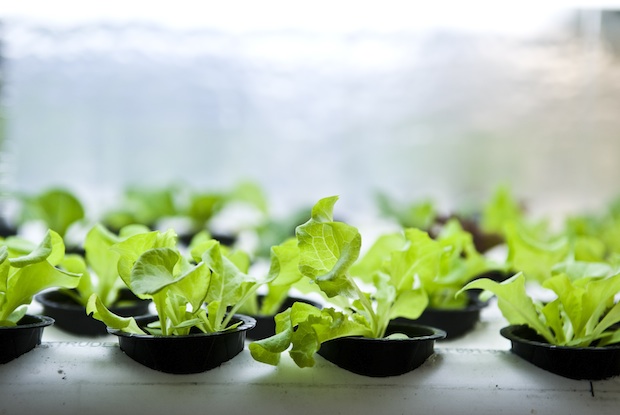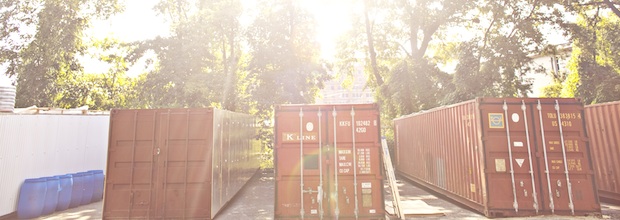Founded by a former software engineer, the company--which just received almost $1 million in funding--is working on ways to provide local food to cities. And by local, they mean truly local. Their special "growing pods" can produce food anywhere.

As fuel prices go up, the cost of shipping produce thousands of miles away rises accordingly. In the past few years, a number of companies have attempted to capitalize on the increasing hunger for locally produced food--we've seen rooftop farming startup BrightFarms and Brooklyn hydroponic farming startup Gotham Greens, just to a name a couple. PodPonics, an Atlanta-based company started by a former software programmer, thinks it can outgrow them all. The company is already well on its way. Last week, PodPonics announced that it raised $725,000 in a seed funding round led by private investors.
PodPonics started in 2010 when founder Matt Liotta--a serial entrepreneur who has launched Internet, software, and telecom startups--noticed that demand significantly outstripped supply in the local food business. "[My work] in Internet, telecom, and agriculture is all pretty similar in that the goal was to find a mature industry and come up with a disruptive technology," he says. "If you wanted to produce fresh produce at the point of consumption in a way that was economically viable, what would you have to invent to do it?"
Liotta decided to use recycled shipping containers as "grow pods," which are outfitted with organic hydroponic nutrient solutions; computer-controlled environmental systems to regulate temperature, humidity, pH levels, and CO2; and lights that emit specific spectrums at different points in the day. The system provides the exact amount of water, lights, and nutrients that a crop requires--so there is no wasted energy (though the pods are still hooked up to the power grid). In a 320 square foot area, PodPonics can produce an acre's worth of produce. The pods can be stacked on top of each other for more efficient use of space.
The startup already supplies 150 pounds of lettuce, arugula, and other microgreens to restaurants (and a smattering of independent groceries) throughout the Atlanta area every week. "We've presold three times more production than we have. The question is, how do we build this faster and more efficiently than we do today? There's an unlimited demand that we're unable to satisfy," says Liotta.

PodPonics' success has caught the eye of plenty of investors who see the potential for massive growth. "If you look at the lettuce market, a lot of [countries] are having their lettuce put on a plane and flown from California to the Middle East, Singapore, and Hong Kong. They have food security issues," explains Richard E. Weinstein, a PodPonics investors.
By next year, PodPonics expects to be able to supply universities. And after that, large chain grocery stores. In five years, Weinstein predicts that Podponics will have a presence in large supermarket chains "in most of the large population centers that are more than 1,500 miles away from [California's] Salinas Valley," where much of the produce in the U.S is grown.
The startup's lightning-fast growth is the result of timing, luck, and--according to Liotta--the fact that PodPonics' technology has allowed it to be more capitally efficient than other urban agriculture startups. The entrepreneur is confident that his startup will continue to scale up, in part because of a growing necessity for its services. "If you're looking to the future, most everybody agrees that fuel prices are going to go up and the population is going to rise. By the time we get to 2050, 60% of the world population will live in urban areas, and we will have 15% less arable land than we have today," says Liotta. "There's got to be a way to divorce arable land from food production if we're going to make it as a species."
Publicación original
Publicación original
No hay comentarios:
Publicar un comentario
Gracias por tu comentario